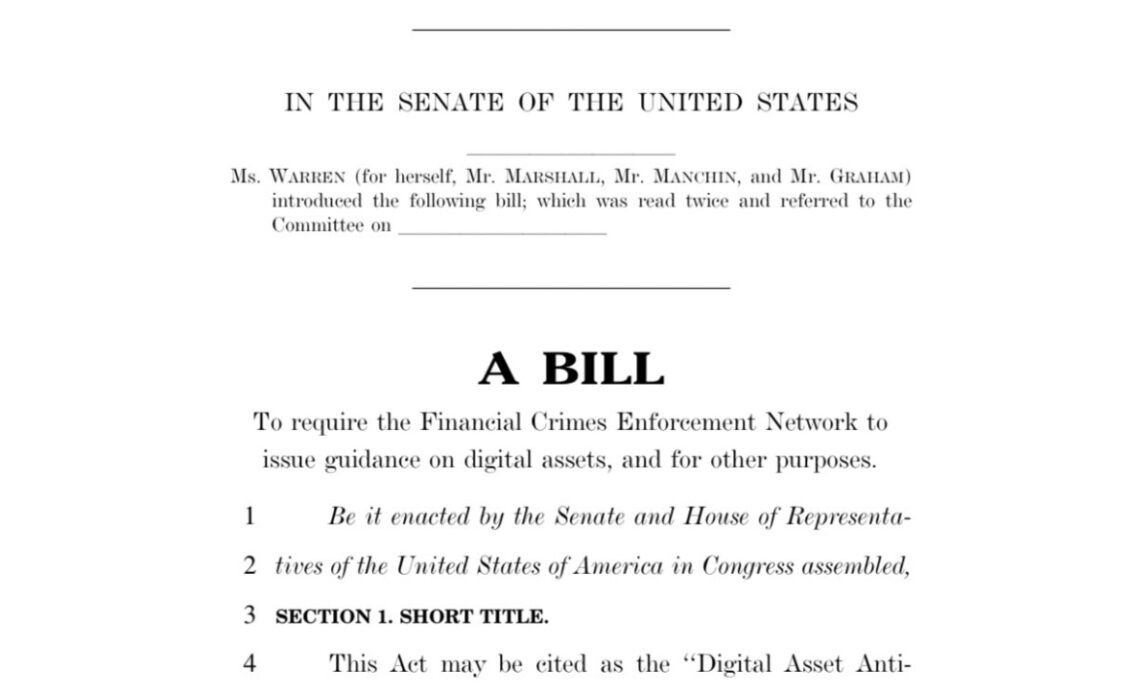It seems that every time Massachusetts Senator Elizabeth Warren fails to get an anti-crypto bill passed, she introduces a new draft. She has the strategy of messaging bills — legislation introduced for the purposes of media attention and fundraising more than actual passage — down to a science.
Warren’s latest legislation, the Digital Asset Anti-Money Laundering Act, threatens to undermine crypto’s core principles of freedom and personal sovereignty. While Warren argues that her bill is necessary to combat illicit activities, a closer look reveals its potential to stifle innovation, endanger user privacy, and play right into the hands of big banks.
The bill, co-sponsored by Kansas Senator Roger Marshall, is based on a premise that digital assets are increasingly being used for criminal activities such as money laundering, ransomware attacks, and terrorist financing. While some bad actors exploit digital assets, the bill’s approach of treating all developers and wallet providers as potential criminals is not only impractical but also dangerous.
Related: The SEC is facing another defeat in its recycled lawsuit against Kraken
The most dangerous part of the bill is the requirement that digital asset developers comply with Bank Secrecy Act (BSA) responsibilities and Know-Your-Customer (KYC) requirements. This effectively places the burden of law enforcement on the shoulders of software developers. It’s akin to requiring car manufacturers to be responsible for how their vehicles are used on the road.
The bill further seeks to eliminate privacy tools that protect crypto users from malicious actors. By cracking down on digital asset mixers and anonymity-enhancing technologies, Warren’s proposal threatens the privacy rights of law-abiding citizens. It’s essential to remember that privacy is a fundamental right, not a privilege that can be discarded at will. A number of early Bitcoin (BTC) millionaires have been kidnapped and tortured as a direct result of the transparency of the Bitcoin blockchain, Warren would leave future Bitcoiners defenseless against such threats.
While she claims to be acting in the name of national security, it’s worth noting that the big banks would benefit greatly from limiting the competition posed by cryptocurrencies. By imposing onerous regulations, the bill would make it difficult for crypto to compete on a level playing field.
But what about the argument that digital assets are…
Click Here to Read the Full Original Article at Cointelegraph.com News…
























